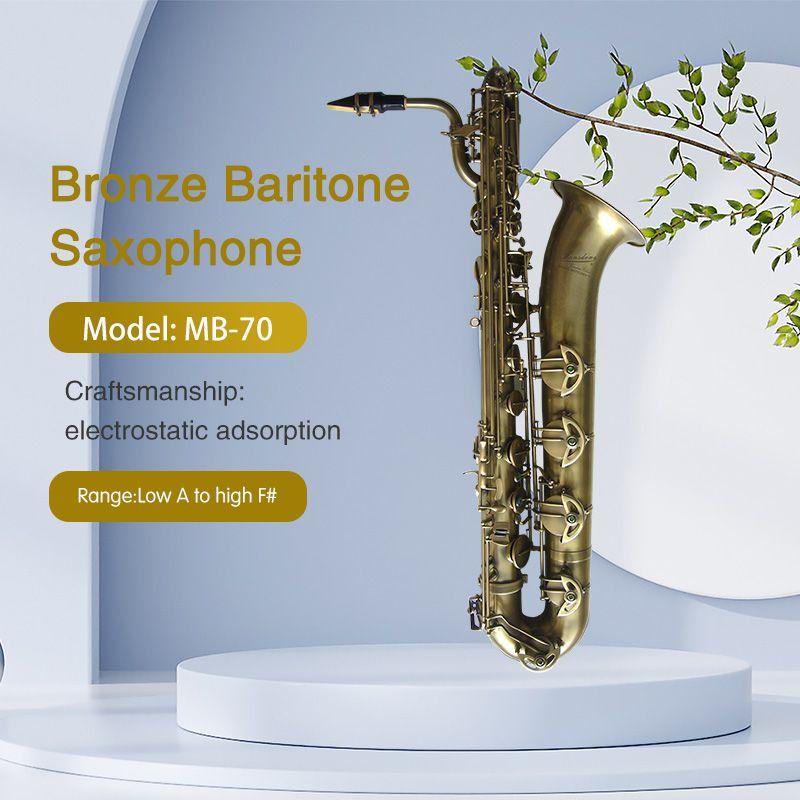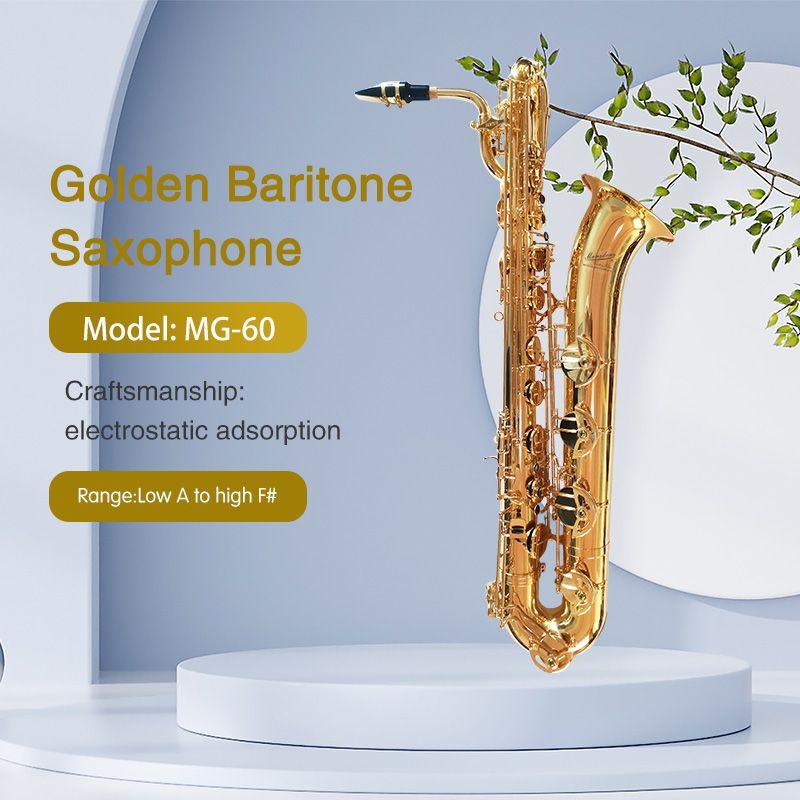The Voice of Power and Grace: In Search of the Greatest Baritone Sax Solos
27-10 2025
 The baritone saxophone holds a unique place in the jazz pantheon. It is the anchor of the saxophone section, the foundational growl in the big band, and an instrument of immense physical and aerodynamic challenge. To master it is one thing; to wrestle from it a solo of profound beauty and power is the mark of a true giant. While declaring a single "greatest" solo is a fool's errand, a journey through a few landmark recordings reveals the pinnacle of what the instrument can achieve.
The baritone saxophone holds a unique place in the jazz pantheon. It is the anchor of the saxophone section, the foundational growl in the big band, and an instrument of immense physical and aerodynamic challenge. To master it is one thing; to wrestle from it a solo of profound beauty and power is the mark of a true giant. While declaring a single "greatest" solo is a fool's errand, a journey through a few landmark recordings reveals the pinnacle of what the instrument can achieve.
The quest for baritone saxophone excellence begins and ends with a foundational pillar of the jazz tradition: Harry Carney. For decades, Carney was the majestic, unwavering voice at the heart of the Duke Ellington Orchestra. His solo on "Sophisticated Lady" is not merely a performance; it is a masterclass in tonal perfection and authentic expressiveness. What astonishes the listener is the comprehensive virtuosity on display. The sheer, velvety power of his sound is a force of nature, but within that power is an incredible delicacy of control. His articulation is precise, his trills are fluid and vocal, and his use of circular breathing creates seamless, singing phrases that seem to defy human limitation. He explores the full range of the horn, from its cavernous lows to its surprisingly tender upper register, all with a command that feels both effortless and authoritative. For its sheer beauty, technical mastery, and emotional depth, many consider Carney's "Sophisticated Lady" to be the greatest baritone saxophone solo ever recorded.
If Carney represents the classic, orchestral ideal, then Ronnie Cuber embodies raw, unadulterated power. His legendary performance on "Moanin'" with the Mingus Big Band is a lesson in kinetic energy. Cuber doesn't just enter; he erupts with a cadenza that immediately morphs into an energetic, propulsive riff that drives the entire band like a freight train. The first thing that strikes you is his tone—fierce, throaty, and masculine, cutting through the dense texture of the wind section with a razor's edge. The solo builds with an almost architectural brilliance, a well-constructed narrative of tension and release that culminates in a climactic roar. It’s so electrifying that one might overlook its clever melodic construction, but it is this combination of raw power and musical intelligence that makes it a modern benchmark.
Then there is the phenomenon of James Carter, a virtuoso who pushes the boundaries of what is physically possible on the instrument. While his pyrotechnic command can sometimes veer into pure shredding, at his best, he is untouchable. His solo on "More Than You Know" from the album Gardenias for Lady Day is a prime example of his genius. Here, Carter passionately sings through his baritone. He sculpts and shapes each note with a rare sensitivity, weaving together tender, slow-passage lamentations with intricate, flowing lines. He showcases his staggering technical facility by seamlessly guiding the baritone into the altissimo register, achieving a clarion-like cry that never sounds forced. The solo's magic is capped by his sublime interplay with Miche Braden's smoky alto vocals, a moment of harmonized beauty that is indeed goosebump-inducing. This same interpretive brilliance is heard on his rendition of "'Round Midnight," another performance that stands just a half-step behind this one in its profound musicality.
From the timeless elegance of Harry Carney to the ferocious energy of Ronnie Cuber and the breathtaking virtuosity of James Carter, the legacy of the baritone sax solo is rich and varied. These masters demonstrate that the "big horn" is not merely a supporting instrument, but a profound and versatile voice capable of expressing the full spectrum of human emotion, from a whisper to a roar.

This article is provided by Mansdone Brand Marketing Department!